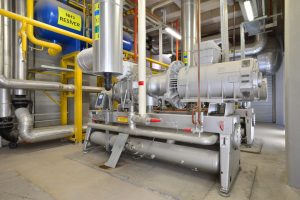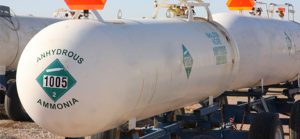There are many gas detectors on the market so it can be difficult to know which one is right for you. The differences in their specification, functionality and features highlight the value that the device can offer, based on the design, need and process of the device.
The importance of conducting a site risk assessment
A risk assessment needs to be conducted before a decision is made on which gas detector will best suit your needs. A risk assessment will help identify any potential hazards that employees will be exposed to, these hazards may include flammable gases/ vapour, toxic gases and oxygen enrichment or deficiency risks. If any gas hazards are identified, gas detection equipment will be applicable as a risk reduction method.
The primary needs for a gas detector
Many companies are utilising portable gas detectors as the device is user-friendly and cost-effective. The technological improvements such as cloud integration and database and status tracking has made the process of detecting gases easier. These improvements have also made health and safety management reporting effortless.
In order to choose the right gas detector, it is important to answer these 6 key questions:
- What gases are to be detected?
- Where do these gases come from?
- What are the risk exposures of the location?
- What are the environmental conditions where detection is to take place?
- What is the total cost of ownership spread across the lifespan of the gas detector?
- Will workers and servicing personnel find it easy to operate the gas detector?
- What approval ratings are required for detection in the intended area?
Once these questions are answered, it will provide a clear indication of the type of device required.
What type of gases do you need to detect?
A risk assessment will help identify which gases need to be detected and the manufacturer can also use their experience from similar environments. But ultimately it is the end user’s responsibility to identify any and all potential hazards and sources of a gas leak.
Is the product ecosystem important?
With the evolution of technology, it is easier and more user-friendly to buy into the product or brand ecosystem, as this will provide full functionality and apparatus adaptation.
The portable gas detector of choice may require gadgets such as docking stations. It is important to know whether you would require these additional items when deciding on a gas detector.
Product Maintenance
Product maintenance is something that cannot be overlooked when deciding which gas detector to choose. You want peace of mind that the device is reliable which makes routine maintenance critical. Whether maintenance is conducted in-house or through a third-party service provider, it is important to have a maintenance plan when choosing the right gas detector.
Your team’s safety is the number one priority when choosing a gas detector, therefore, it is important to make an informed decision that will work out best for your organisation and the application need. It’s best to speak with an organisation that is equipped and experienced to give you the right advice. Complete the form below and one of our helpful staff will be in touch.
Related Articles:

Managing Ammonia Gas Leaks in the Refrigeration Industry
Discover the hazards of ammonia gas leaks in refrigeration. Learn about advanced detection solutions and safety strategies to protect workers and ensure compliance.

Ammonia Gas Leak Detection: Essential Safety Guide
This whitepaper considers the different Confined Space Entry (CSE) challenges, highlighting features and characteristics that define best-in-class practices and solutions.

Navigating Hydrogen Safety
Take a closer look at the challenges posed by hydrogen leaks, the risks involved and the need for precautionary measures to ensure the safe adoption
